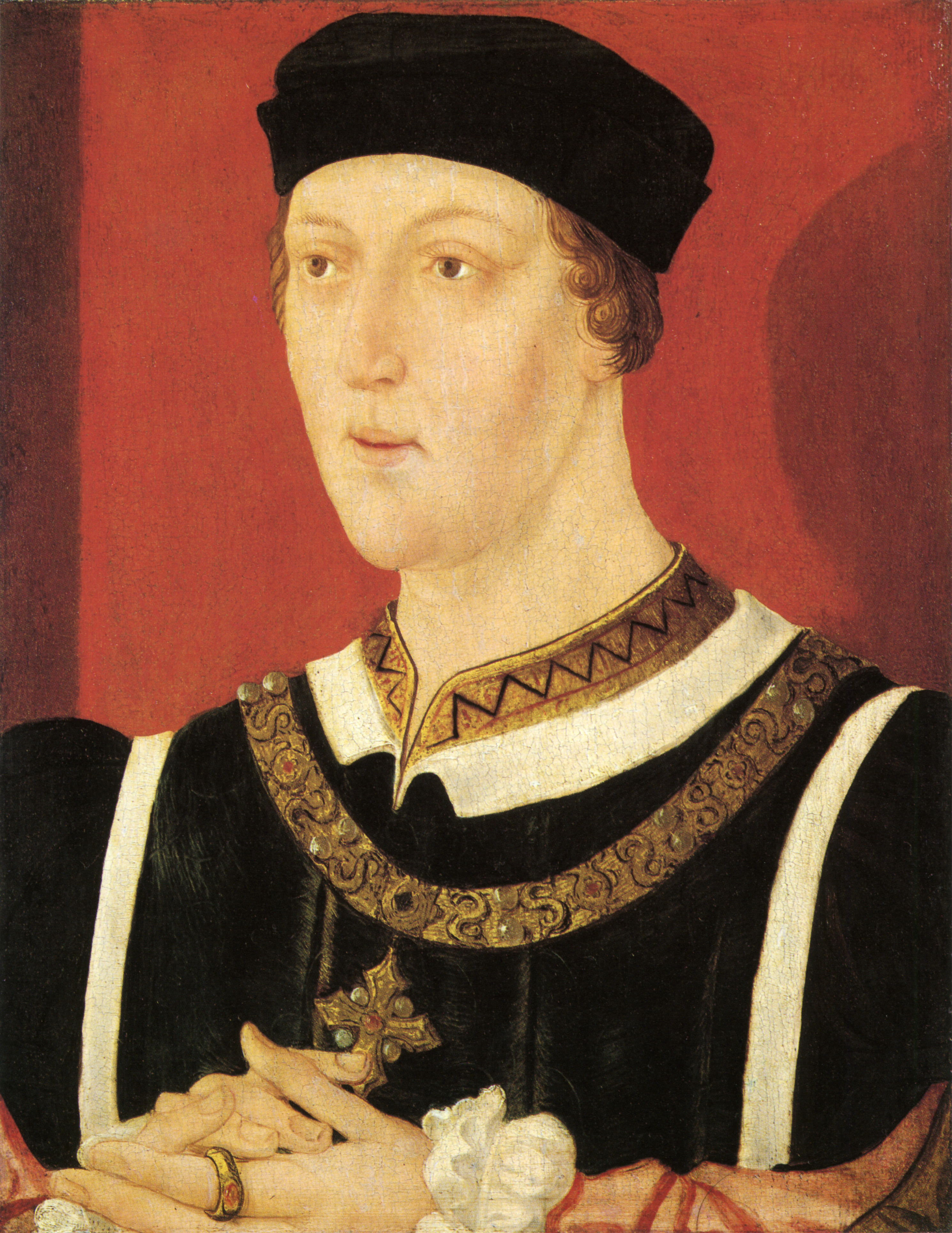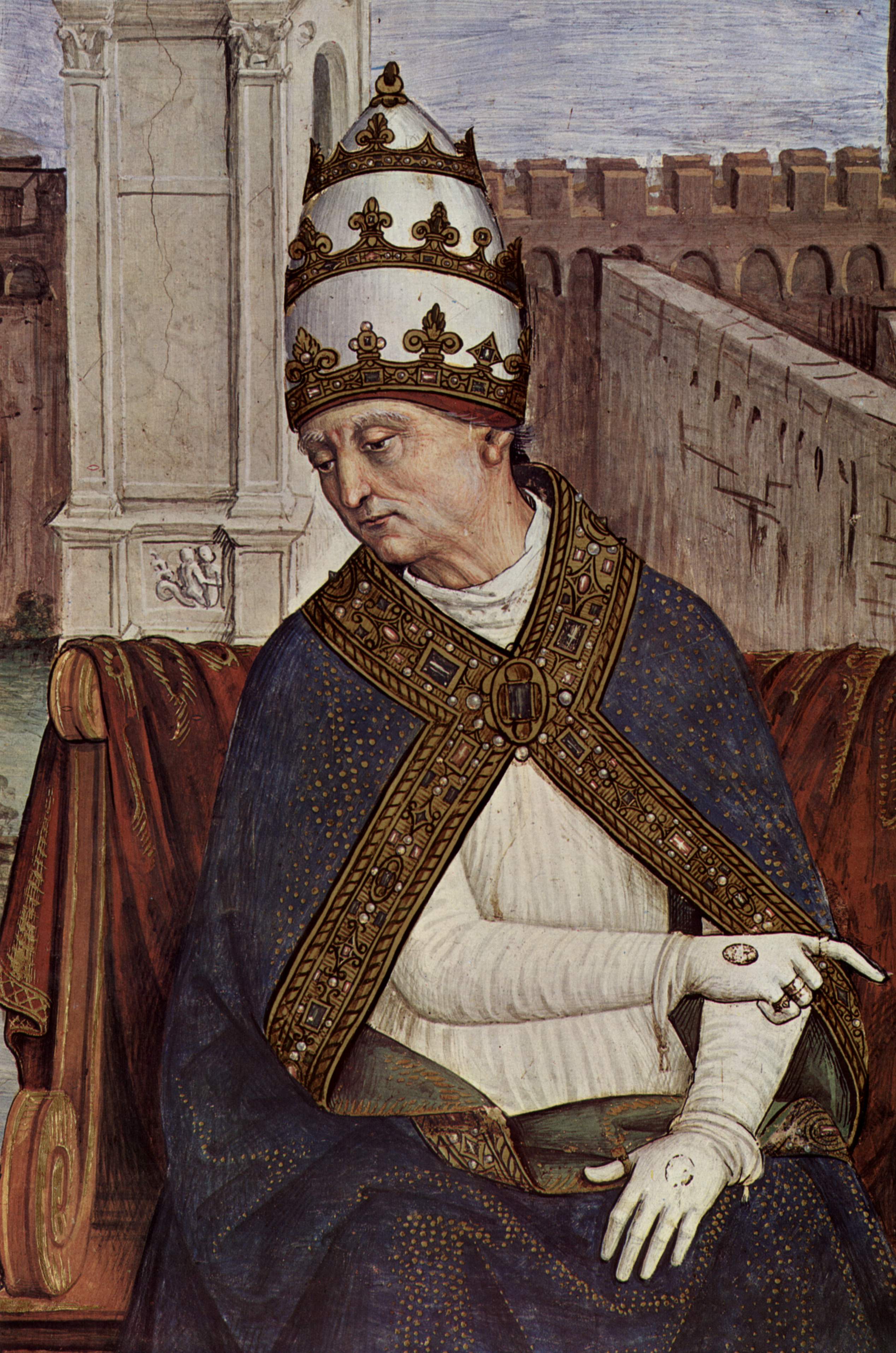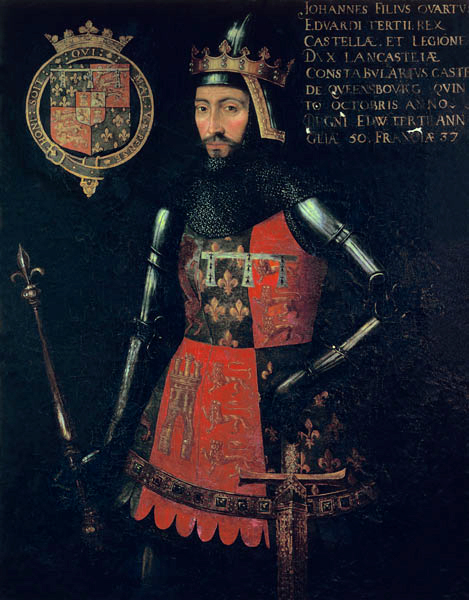|
1458
Year 1458 ( MCDLVIII) was a common year starting on Sunday of the Julian calendar, the 1458th year of the Common Era (CE) and Anno Domini (AD) designations, the 458th year of the 2nd millennium, the 58th year of the 15th century, and the 9th year of the 1450s decade. Events January–December * January 24 – Matthias Corvinus becomes king of Hungary, at age 14. * February 27 – George of Poděbrady is elected king of Bohemia. * March 25 – The Loveday is staged in London, by which Henry VI of England attempts to unite the warring factions who have triggered the Wars of the Roses. * June – Francesco II Acciaioli, last Duke of Athens, surrenders the city to the Ottoman Empire and Sultan Mehmed II enters peacefully in August. Ottoman authorities issue a decree to protect the Acropolis. * July 15 – Magdalen College, Oxford, is founded. * August 19 – Pope Pius II succeeds Callixtus III, as the 210th pope. * October 24 – King Afonso ... [...More Info...] [...Related Items...] OR: [Wikipedia] [Google] [Baidu] |
Matthias Corvinus
Matthias Corvinus (; ; ; ; ; ) was King of Hungary and King of Croatia, Croatia from 1458 to 1490, as Matthias I. He is often given the epithet "the Just". After conducting several military campaigns, he was elected King of Bohemia in 1469 and adopted the title Duke of Austria in 1487. He was the son of John Hunyadi, Regent of Hungary, who died in 1456. In 1457, Matthias was imprisoned along with his older brother, Ladislaus Hunyadi, on the orders of King Ladislaus the Posthumous. Ladislaus Hunyadi was executed, causing a rebellion that forced King Ladislaus to flee Hungary. After the King died unexpectedly, Matthias's uncle Michael Szilágyi persuaded the Estates of the realm, Estates to unanimously proclaim the 14-year-old Matthias as king on 24 January 1458. He began his rule under his uncle's guardianship, but he took effective control of government within two weeks. As king, Matthias waged wars against the Czech mercenaries who dominated Upper Hungary (today parts of Slova ... [...More Info...] [...Related Items...] OR: [Wikipedia] [Google] [Baidu] |
Loveday, 1458
The Loveday of 1458 (also known as the Annunciation Loveday) was a ritualistic reconciliation between warring factions of the English nobility that took place at St Paul's Cathedral on 25 March 1458. Following the outbreak of the Wars of the Roses in 1455, it was the culmination of lengthy negotiations initiated by King Henry VI to resolve the lords' rivalries. English politics had become increasingly factional during his reign, and was exacerbated in 1453 when he became catatonic. This effectively left the government leaderless, and eventually the King's cousin, and at the time heir to the throne, Richard, Duke of York, was appointed protector during the King's illness. Alongside York were his allies from the politically and militarily powerful Neville family, led by Richard, Earl of Salisbury, and his eldest son, Richard, Earl of Warwick. When the King returned to health a year later, the protectorship ended but partisanship within the government did not. Supporters of King ... [...More Info...] [...Related Items...] OR: [Wikipedia] [Google] [Baidu] |
Pope Pius II
Pope Pius II (, ), born Enea Silvio Bartolomeo Piccolomini (; 18 October 1405 – 14 August 1464), was head of the Catholic Church and ruler of the Papal States from 19 August 1458 to his death in 1464. Aeneas Silvius was an author, diplomat, and orator, and private secretary of Antipope Felix V and then the Emperor Frederick III, and then Pope Eugenius IV. He participated in the Council of Basel, but left it in 1443 to follow Frederick, whom he reconciled to the Roman obedience. He became Bishop of Trieste in 1447, Bishop of Siena in 1450, and a cardinal in 1456. He was a Renaissance humanist with an international reputation. Aeneas Silvius' longest and most enduring work is the story of his life, the ''Commentaries'', which was the first autobiography of a pope to have been published. It appeared posthumously, in 1584, 120 years after his death. Early life Aeneas was born in Corsignano in Sienese territory of a noble but impoverished family. His father Silvio was a s ... [...More Info...] [...Related Items...] OR: [Wikipedia] [Google] [Baidu] |
Pope Callixtus III
Pope Callixtus III (, , ; 31 December 1378 – 6 August 1458), born Alonso de Borja (), was head of the Catholic Church and ruler of the Papal States from 8 April 1455 to his death, in August 1458. Borgia spent his early career as a professor of law at the University of Lleida; he later served as a diplomat for the kings of Aragon. He became a tutor for King Alfonso V's illegitimate son Ferdinand. After arranging a reconciliation between Alfonso and Pope Martin V, Borgia was made Bishop of Valencia. In 1444, Pope Eugene IV named him a cardinal, and Borgia became a member of the Roman Curia. During the siege of Belgrade (1456), Callixtus initiated the custom that bells be rung at midday to remind the faithful to pray for the crusaders. The tradition of the Angelus noon bell still exists in most Catholic churches to this day. He was also responsible for the retrial of Joan of Arc that saw her vindicated. He appointed two nephews as cardinals, one of whom became Pope Alexande ... [...More Info...] [...Related Items...] OR: [Wikipedia] [Google] [Baidu] |
George Of Poděbrady
George of Kunštát and Poděbrady (23 April 1420 – 22 March 1471), also known as Poděbrad or Podiebrad (; ), was the sixteenth King of Bohemia, who ruled in 1458–1471. He was a leader of the Hussites, but moderate and tolerant toward the Catholic faith. His rule was marked by great efforts to preserve peace and tolerance between the Hussites and Catholics in the religiously divided Crown of Bohemia – hence his contemporary nicknames: "King of two peoples" () and "Friend of peace" (''přítel míru''). During the 19th century, in period of the so-called Czech National Revival, he began to be praised (even somewhat idealized) as the last Czech national monarch (in terms of ethnic awareness), a great diplomat and a courageous fighter against the domination of the Catholic Church. In modern times he is remembered mainly for his idea and attempt to establish common European Christian institutions, which is now seen as an early historical vision of European unity. Early li ... [...More Info...] [...Related Items...] OR: [Wikipedia] [Google] [Baidu] |
Magdalen College, Oxford
Magdalen College ( ) is a Colleges of the University of Oxford, constituent college of the University of Oxford. It was founded in 1458 by Bishop of Winchester William of Waynflete. It is one of the wealthiest Oxford colleges, as of 2022, and one of the strongest academically, setting the record for the highest Norrington Table, Norrington Score in 2010 and topping the table twice since then. It is home to several of the university's distinguished Chair (academic), chairs, including the Serena Professor of Italian#Serena Professors at Oxford, Agnelli-Serena Professorship, the Sherardian Professor of Botany, Sherardian Professorship, and the four Waynflete Professorships. The large, square Magdalen Tower is an Oxford landmark, and it is a tradition, dating to the days of Henry VII of England, Henry VII, that the college choir sings from the top of it at 6 a.m. on May Morning. The college stands next to the River Cherwell and the University of Oxford Botanic Garden. Within i ... [...More Info...] [...Related Items...] OR: [Wikipedia] [Google] [Baidu] |
Athens
Athens ( ) is the Capital city, capital and List of cities and towns in Greece, largest city of Greece. A significant coastal urban area in the Mediterranean, Athens is also the capital of the Attica (region), Attica region and is the southernmost capital on the European mainland. With its urban area's population numbering over 3.6 million, it is the List of urban areas in the European Union, eighth-largest urban area in the European Union (EU). The Municipality of Athens (also City of Athens), which constitutes a small administrative unit of the entire urban area, had a population of 643,452 (2021) within its official limits, and a land area of . Athens is one of the List of oldest continuously inhabited cities, world's oldest cities, with its recorded history spanning over 3,400 years, and its earliest human presence beginning somewhere between the 11th and 7th millennia BCE. According to Greek mythology the city was named after Athena, the ancient Greek goddess of wisdom, ... [...More Info...] [...Related Items...] OR: [Wikipedia] [Google] [Baidu] |
Mehmed II
Mehmed II (; , ; 30 March 14323 May 1481), commonly known as Mehmed the Conqueror (; ), was twice the sultan of the Ottoman Empire from August 1444 to September 1446 and then later from February 1451 to May 1481. In Mehmed II's first reign, he defeated the crusade led by John Hunyadi after the Hungarian incursions into his country broke the conditions of the truce per the Peace of Szeged, Treaties of Edirne and Szeged. When Mehmed II ascended the throne again in 1451, he strengthened the Ottoman Navy and made preparations to attack Constantinople. At the age of 21, he Fall of Constantinople, conquered Constantinople and brought an end to the Byzantine Empire. After the conquest, Mehmed claimed the title Caesar (title), caesar of Roman Empire, Rome (), based on the fact that Constantinople had been the seat and capital of the surviving Byzantine Empire, Eastern Roman Empire since its consecration in 330 AD by Constantine the Great, Emperor Constantine I. The claim was soon reco ... [...More Info...] [...Related Items...] OR: [Wikipedia] [Google] [Baidu] |
Ksar Es-Seghir
Ksar es-Seghir (, ''al-Qasr as-Seghir''), also known by numerous other spellings and names, is a small town on the Mediterranean coast in the Jebala region of northwest Morocco, between Tangier and Ceuta, on the right bank of the river of the same name. Administratively, it belongs to Fahs-Anjra Province and the region of Tanger-Tetouan-Al Hoceima. By the census of 2004, it had a population of 10,995 inhabitants. The city is circular, a design unusual in medieval Moroccan town planning. It is built from brick and ashlar masonry and flanked by semi-circular masonry towers. There are three monumental doors in the wall, each flanked by square towers. The Bāb al-Bahr (door of the sea), has an elbowed entrance for defensive purposes. These doors were used both for communication and trade and for taxation purposes. Names The Moroccan Arabic name, meaning "The Small Castle", can be transcribed ''l-Qṣər ṣ-Ṣġir'' or ''Ksar Sghir''. The name distinguishes it from Ksar- ... [...More Info...] [...Related Items...] OR: [Wikipedia] [Google] [Baidu] |
Henry VI Of England
Henry VI (6 December 1421 – 21 May 1471) was King of England from 1422 to 1461 and 1470 to 1471, and English claims to the French throne, disputed King of France from 1422 to 1453. The only child of Henry V of England, Henry V, he succeeded to the Throne of England, English throne at the age of eight months, upon his father's death, and to the List of French monarchs, French throne on the death of his maternal grandfather, Charles VI of France, Charles VI, shortly afterwards. Henry was born during the Hundred Years' War (1337–1453), he is the only English monarch to have been crowned King of France, following his coronation at Notre-Dame de Paris in 1431 as Henry II. His early reign, when England was ruled by a Regency government, 1422–1437, regency government, saw the pinnacle of English power in Kingdom of France, France. However, setbacks followed once he assumed full control in 1437. The young king faced military reversals in France, as well as political and financia ... [...More Info...] [...Related Items...] OR: [Wikipedia] [Google] [Baidu] |
August 19
Events Pre-1600 * 295 BC – The first temple to Venus, the Roman goddess of love, beauty and fertility, is dedicated by Quintus Fabius Maximus Gurges during the Third Samnite War. *43 BC – Gaius Julius Caesar Octavianus, later known as Augustus, compels the Roman Senate to elect him Consul. * 947 – Abu Yazid, a Kharijite rebel leader, is defeated and killed in the Hodna Mountains in modern-day Algeria by Fatimid forces. * 1153 – Baldwin III of Jerusalem takes control of the Kingdom of Jerusalem from his mother Melisende, and also captures Ascalon. * 1458 – Pope Pius II is elected the 211th Pope. * 1504 – In Ireland, the Hiberno-Norman de Burghs (Burkes) and Cambro-Norman Fitzgeralds fight in the Battle of Knockdoe. * 1561 – Mary, Queen of Scots, aged 18, returns to Scotland after spending 13 years in France. 1601–1900 * 1604 – Eighty Years War: a besieging Dutch and English army led by Maurice of Orange forces the ... [...More Info...] [...Related Items...] OR: [Wikipedia] [Google] [Baidu] |
Wars Of The Roses
The Wars of the Roses, known at the time and in following centuries as the Civil Wars, were a series of armed confrontations, machinations, battles and campaigns fought over control of the English throne from 1455 to 1487. The conflict was fought between supporters of the House of Lancaster and House of York, two rival cadet branches of the royal House of Plantagenet. The conflict resulted in the end of Lancaster's male line in 1471, leaving the Tudors of Penmynydd, Tudor family to inherit their claim to the throne through the female line. Conflict was largely brought to an end upon the union of the two houses through marriage, creating the Tudor dynasty that would subsequently rule England. The Wars of the Roses were rooted in English socio-economic troubles caused by the Hundred Years' War (1337–1453) with France, as well as the quasi-military bastard feudalism resulting from the powerful duchies created by King Edward III. The mental instability of King Henry VI of Englan ... [...More Info...] [...Related Items...] OR: [Wikipedia] [Google] [Baidu] |








